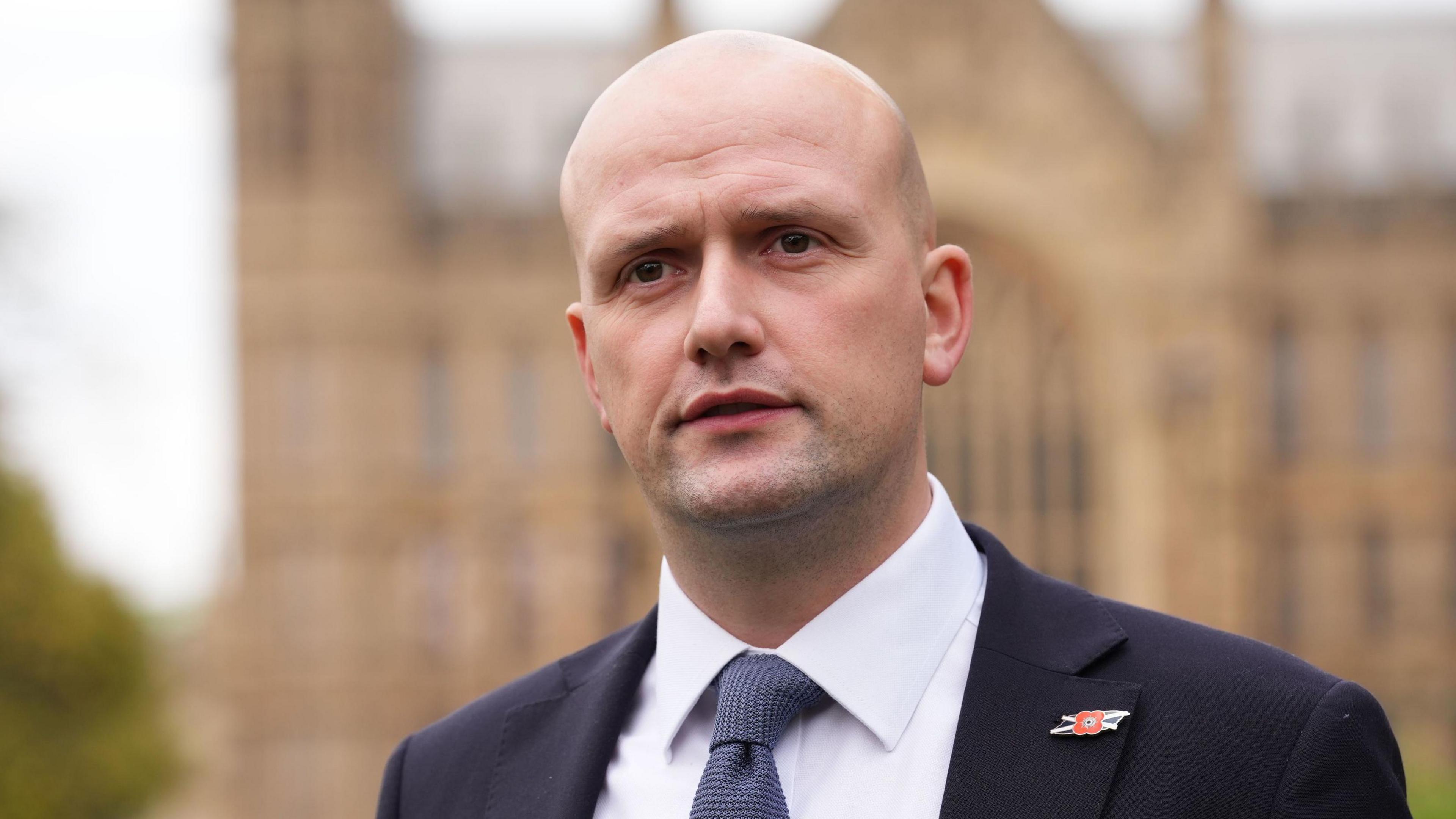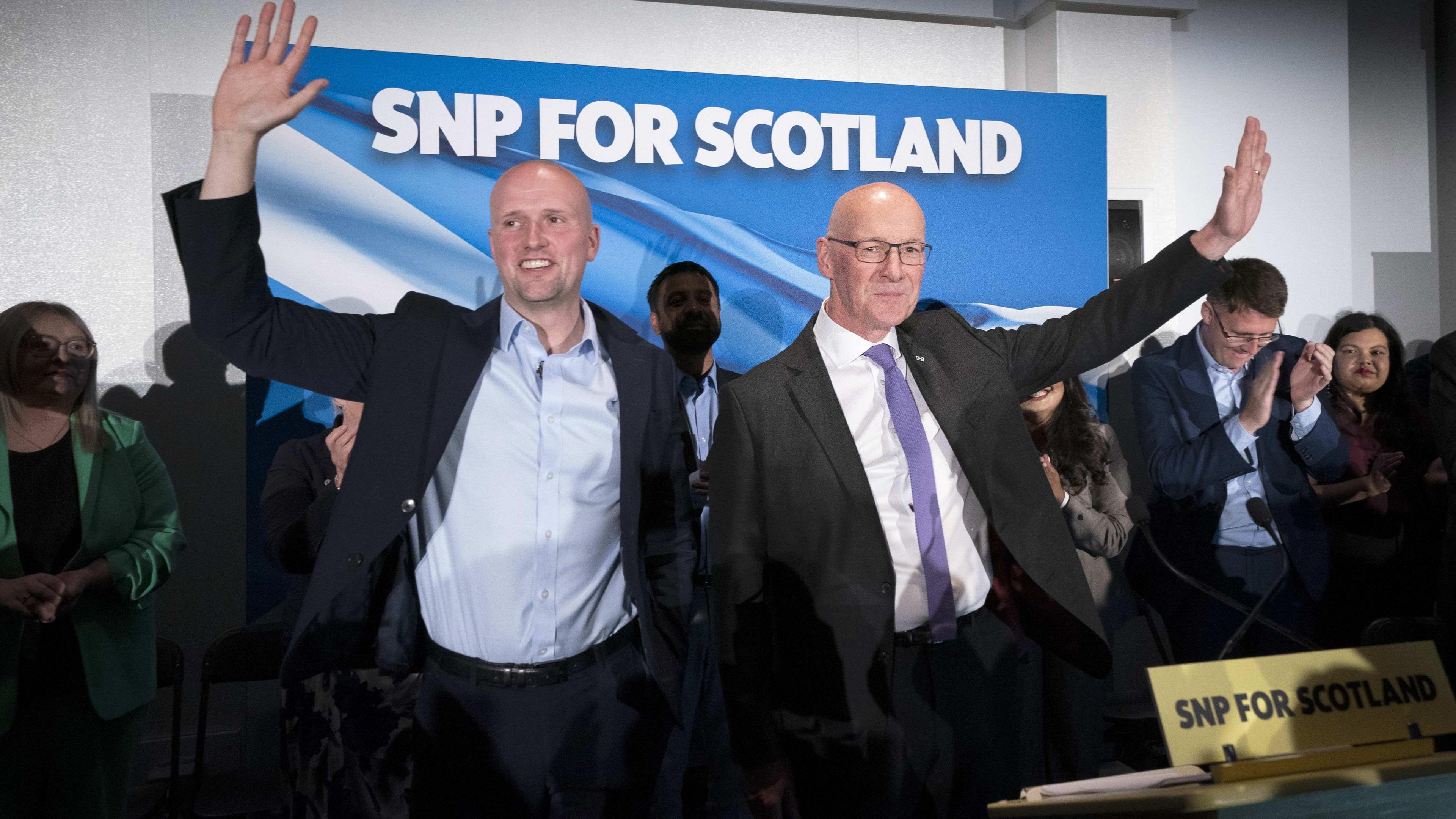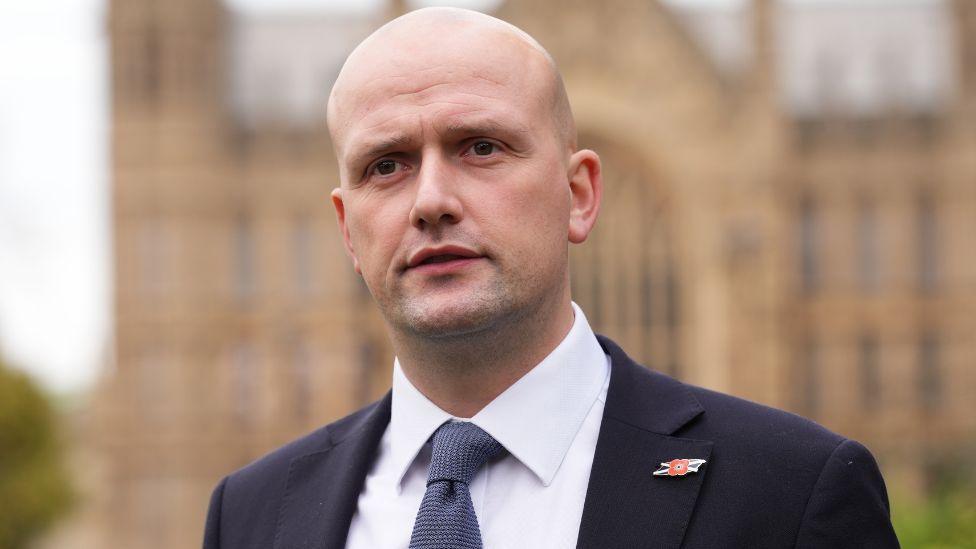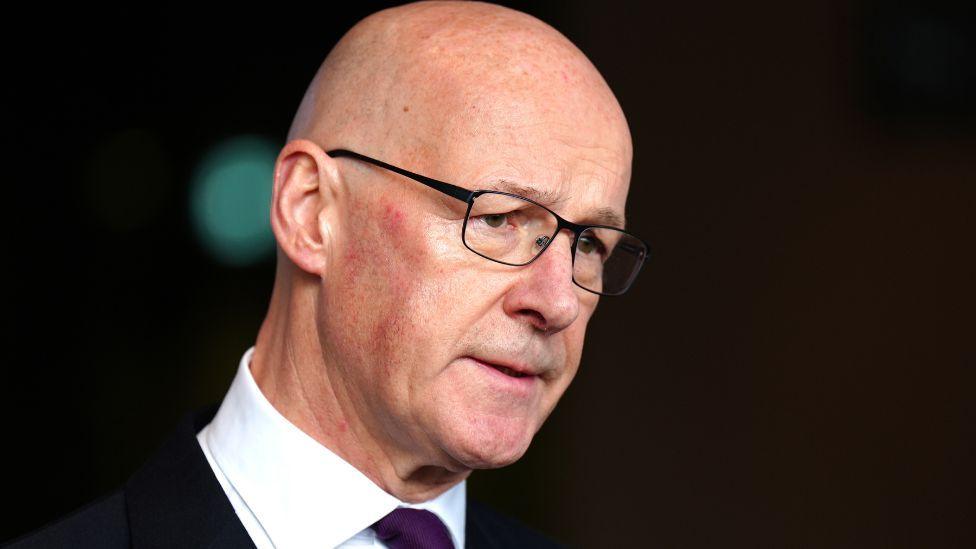Flynn will not seek dual mandate to become MSP

Stephen Flynn represents Aberdeen South at Westminster
- Published
SNP Westminster leader Stephen Flynn says he will not seek a dual mandate to stand as an MSP in the Scottish Parliament while remaining an MP.
Flynn, who represents Aberdeen South in the House of Commons, said: “Hands up, I’ve got this one wrong."
He previously said he would aim to hold his Westminster seat until the next general election, due in 2029, but would not accept two salaries.
The Aberdeen South and North Kincardine seat at Holyrood is currently held by the SNP's Audrey Nicoll.
Flynn said he had sought a dual mandate "for the right reasons" but it did not change the fact he had got it wrong.
He said: “My aim to save the public purse from unnecessary strain by potentially overlapping the role of an MP and an MSP for a short period until the next general Election was genuine in its intent.
“Alongside all SNP members, I now look forward to assessing the new candidate selection rules that my party will put in place.”

Stephen Flynn with SNP leader John Swinney
Scottish Conservative deputy leader Rachael Hamilton described Flynn's decision as "a humiliating U-turn".
She added: "His plans were typical of arrogant SNP politicians who think there should be one rule for them and another for everyone else.
“However, even people in his own party saw right through his rank hypocrisy and made their feelings known."
Flynn's intention to stand had caused anger within his party.
Ahead of the 2021 election, the SNP changed internal rules to require MPs to resign their seat at Westminster to fight for selection to Holyrood.
The party's ruling body - the National Executive Committee (NEC) - could decide to scrap the rule for contests ahead of 2026.

Stephen Flynn’s statement about his future was released on Thursday night while he was at the Scottish Politician of the Year Awards.
He won’t have picked up any gongs for strategy having been forced into this reversal but the canny MP will live to fight another day.
His comments don’t entirely clear up what his plans are, underlining that he won’t seek to be both an MSP and an MP without explicitly spelling out that he plans to quit one parliament for the other.
Mr Flynn still clearly still sees his future at Holyrood - the “heart of Scottish democracy” - and realistically he isn’t going to wait until 2031 for another shot at it.
He’s also been tipped as a potential leader of the SNP, and while he’s stressed that he thinks John Swinney will be in post for a while yet, he’s also been clear that the party needs to be led by an MSP.
But he seems to be keeping his options open somewhat by saying he wants to see what the SNP decides about its rules for candidates in 2026.
If the party decides MPs need to quit before having a shot at Holyrood - as it did in 2021 - that is a slightly more risky proposition than if it simply demanded they stand down from Westminster after securing a seat in Edinburgh.
Mr Flynn also needs to gauge how this row has gone down with local SNP members, and ultimately the electorate in Aberdeen.
His ambition is no secret, and he may be feeling a bit bruised by how his latest political gambit has played out.
But few will be surprised if he ultimately continues his bid to get to Holyrood - and perhaps in time to the top of the SNP.

First Minister John Swinney said last week that the SNP had yet to make a decision on whether its politicians could hold a dual mandate - where a single person sits in both Westminster and Holyrood.
Swinney, who held seats at both Westminster and Holyrood between 1999 and 2001, told BBC Scotland News: "We’ve had times in the past when we’ve had dual mandates.
“The party has got to come to its conclusions about these particular issues and it will do in the fullness of time.”
Opposition parties have called for dual mandates to be banned, with the Conservatives re-tabling an amendment to the Scottish Elections (Representation and Reform) Bill to outlaw it in time for the 2026 election.
A vote is expected to be held before Christmas, with both Labour and the Greens supporting the move.
Related topics
- Published12 November 2024

- Published13 November 2024

- Published18 November 2024
